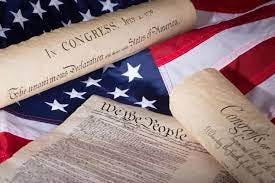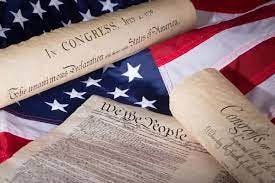Patriotic American citizens today have the moral duty to be revolutionary and to seek to forge a non-violent people’s revolution.
Even when non-violent, a revolution does not dodge the issue of power. A revolution involves the quest for the taking of political power by and for an underdog class. Non-violent revolutions have taken power through electoral means in political systems with representative democracy, like in Venezuela and Bolivia; they are examples for us in the USA.
In the case of the United States today, what is needed is a people’s revolution, where all the diverse sectors of the people unite in capturing control of the institutions of the nation, beginning with the executive and legislative branches of the federal government in alliance with parallel movements in many of the states. The methods ought to be legal, except in conditions in which the established order enacts unreasonable laws in order to stop the movement; but the methods and strategies mus…



